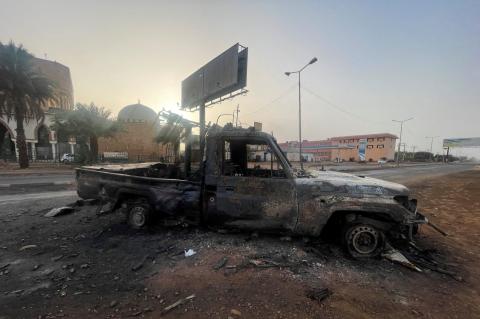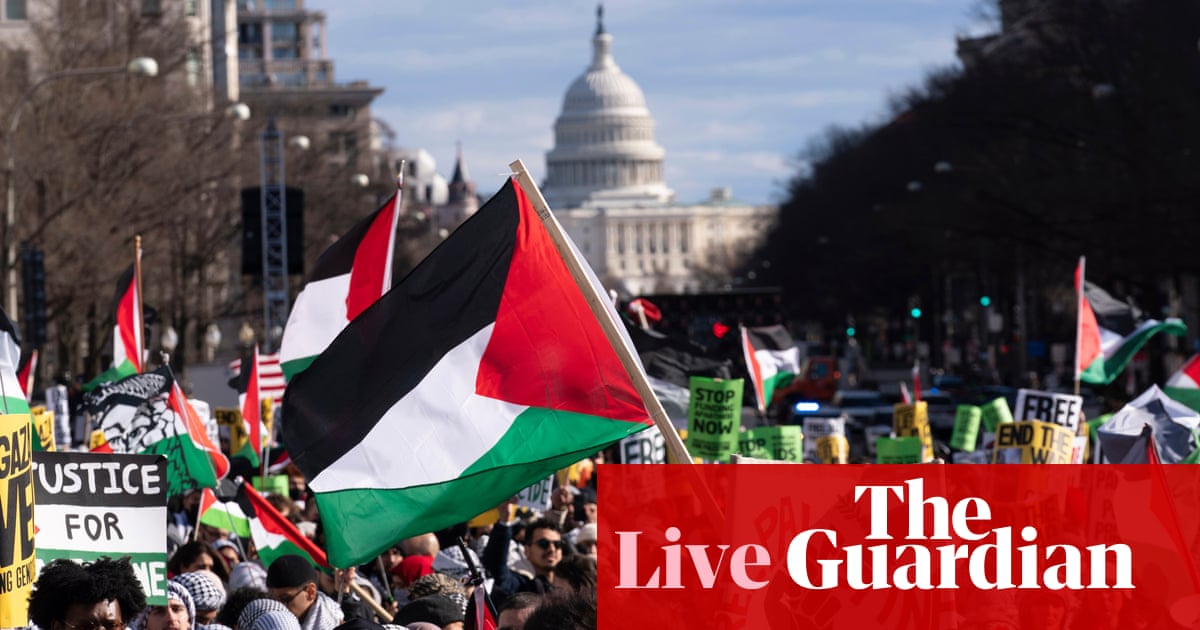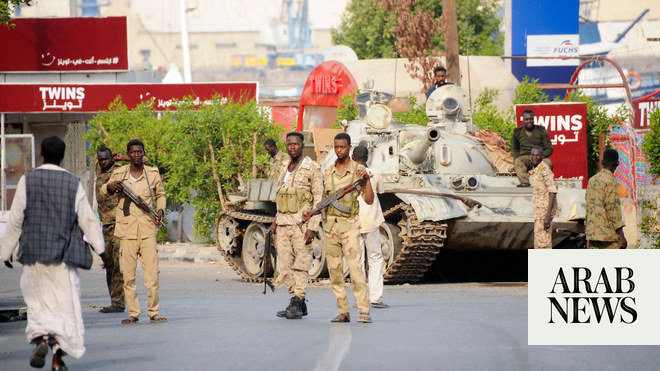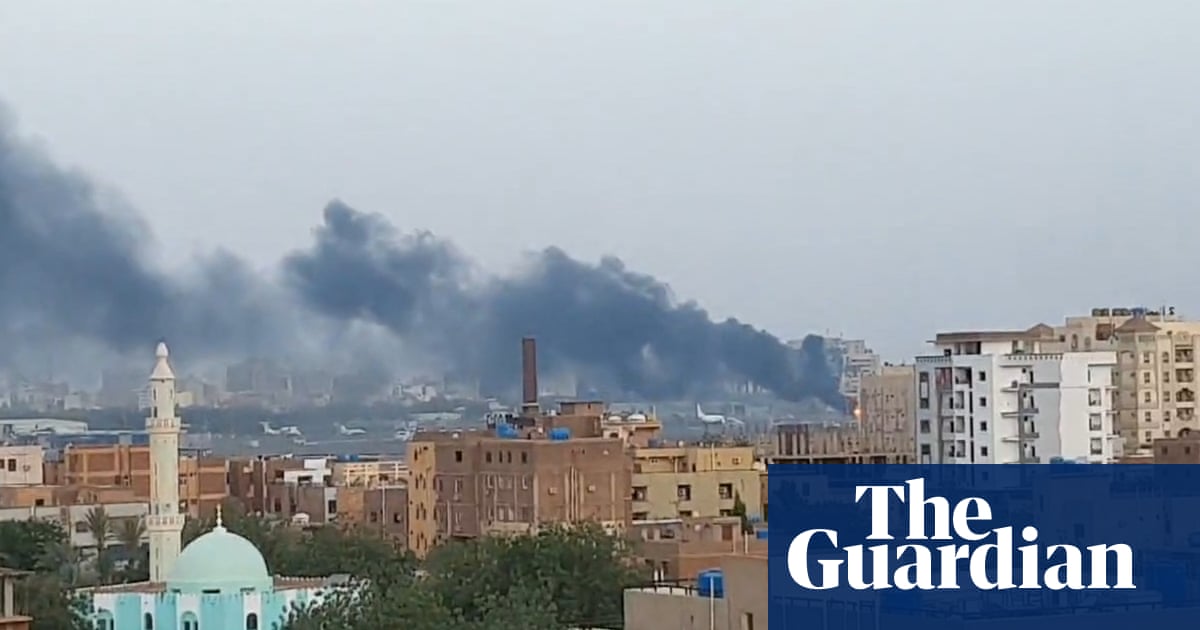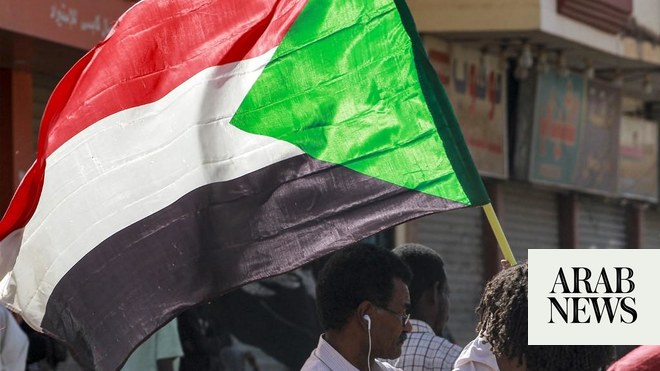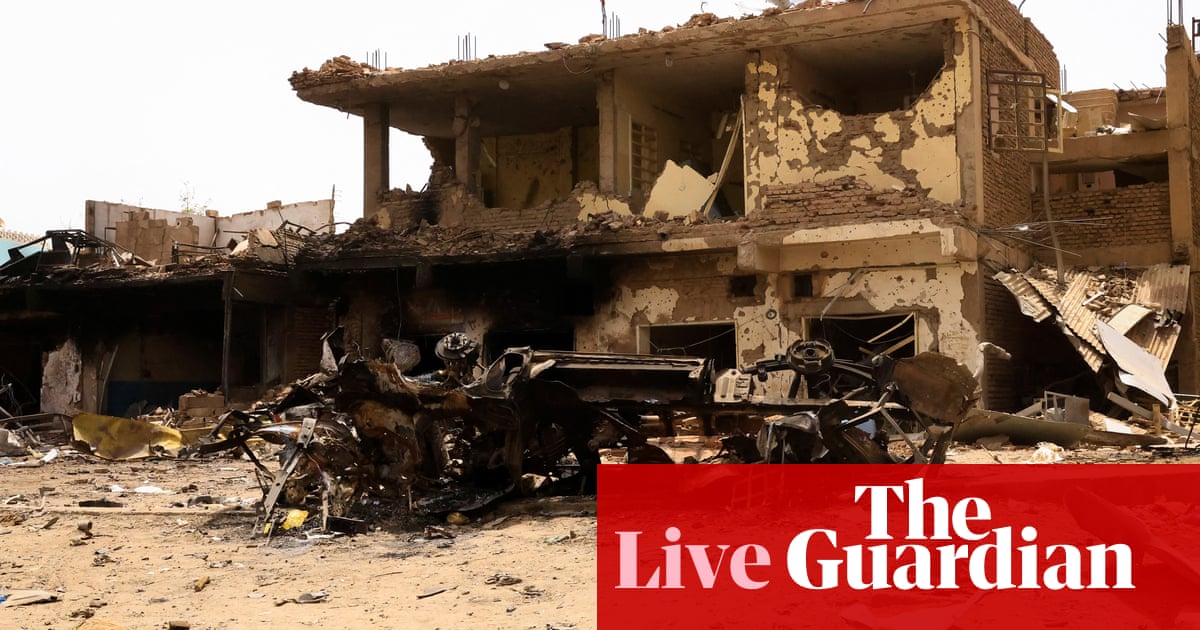
Sudan’s paramilitary Rapid Support Forces (RSF) have also agreed to support a further 72-hour ceasefire in a statement, according to Reuters. The ceasefire was due to expire at midnight. The Sudanese army earlier agreed to the extension of the truce.
A summary of today"s developments
Sudan’s army has agreed to extend the truce for 72 hours, according to a statement. Sudan’s paramilitary Rapid Support Forces (RSF) also agreed to support the new ceasefire in a statement, according to Reuters, after diplomatic efforts by neighbouring countries as well as the US, UK and the United Nations. The truce between the two warring factions was due to expire at midnight local time (11pm UK time). But the previous truce did not stop the fighting between the two sides, according to the Associated Press.
About 16,000 people have crossed the border from Sudan into Egypt including 14,000 Sudanese citizens, according to a statement from the Egyptian foreign ministry on Thursday.
AFP reports that at least 512 people have been killed and 4,193 wounded in the fighting in Sudan, according to health ministry figures, although the real death toll is likely much higher.
Britain’s ambassador in Sudan is speaking to the warring parties in the country to urge them to extend a 72-hour ceasefire that is due to expire at midnight local time tonight.
Fighting intensified in Sudan’s province of Darfur during the fragile three-day truce, killing an estimated dozens of people, residents said Thursday. Associated Press reports that the new clashes targeted civilians in the city of Genena.
Sudan’s Rapid Support Forces (RSF), which support the former warlord Gen Mohamed Hamdan Dagalo, known as Hemedti, claims it has repelled an attack in the Kafori area. They say the attackers suffered significant losses. The incident has not been verified.
A second UK-bound charter plane carrying an estimated 250 evacuees has just left Larnaca, Helena Smith reports. “We are trying to line up charters for as soon as possible after the RAF transporters come in,” a source said. American and Australian citizens have also been among passengers on the rescue flights. More than 750 British nationals have so far reached Cyprus on rescue flights.
James Cleverly, the UK’s foreign secretary, has made a direct appeal to the heads of the warring factions as he called for the bloodshed to end. “If they aspire to be the leader of Sudan, demonstrating a willingness to protect the people of Sudan would be a very important starting point,’” said Cleverly.
The International Rescue Committee (IRC) has called on countries to shift their focus from evacuees to those who remain in Sudan, and said that an urgent frontline funding surge is needed for both Sudan and Chad.
China has deployed its navy to rescue citizens from Sudan, the defence ministry in Beijing said on Thursday.
Canada conducted its first evacuation operation in Sudan on Thursday, airlifting over 100 hundred people including Canadians and other nationals on two flights, senior government officials said.
About 180 Canadians were evacuated from the region earlier with the help of other countries, and the federal government had been working to set up its own operation to extract civilians.
“I can confirm that a first Canadian evacuation flight from Sudan has taken place using an RCAF (Royal Canadian Air Force) CC-130 Hercules aircraft,” defence minister Anita Anand said at a news conference.
The first flight carried about 45 people from countries including Canada, the US and Japan, while a second flight a few hours later had 73 people onboard, according to the Canadian foreign ministry.
The UK’s foreign secretary, James Cleverly, urged all UK nationals wishing to flee Sudan to come forward “as quickly as possible” despite a 72-hour extension to the ceasefire being agreed.
He said: “The ceasefire in Sudan has just been extended. The UK calls for its full implementation by the generals.
“British evacuation flights are ongoing. I urge all British nationals wishing to leave to proceed to the airport as quickly as possible to ensure their safety.”
Britain and allies welcome extension to ceasefire
Britain has welcomed the 72-hour extension to the ceasefire agreed in Sudan.
In a joint statement issued by the UK and allies including the United States and Saudi Arabia, the countries said they “welcome the announcement by the Sudanese Armed Forces and Rapid Support Forces to extend the current ceasefire for an additional 72 hours and call for its full implementation”.
“We also welcome their readiness to engage in dialogue towards establishing a more durable cessation of hostilities and ensuring unimpeded humanitarian access.”
The RSF said said the proposal for the new truce which it agreed was from two diplomatic groupings that include the US, the UK, Saudi Arabia, the United Arab Emirates and Norway.
The White House said it is deeply concerned by the increase in ceasefire violations in Sudan, Reuters reports.
The existing truce, which was to expire at midnight Thursday, has not stopped the fighting between the two sides, Associated Press notes. However, it created enough of a lull for tens of thousands of Sudanese to flee to safer areas and for foreign nations to evacuate hundreds of their citizens by land and sea.
Sudan’s paramilitary Rapid Support Forces (RSF) have also agreed to support a further 72-hour ceasefire in a statement, according to Reuters. The ceasefire was due to expire at midnight. The Sudanese army earlier agreed to the extension of the truce.
The situation in Sudan could worsen at any moment and Americans should leave within the next 24 to 48 hours, the White House spokesperson Karine Jean-Pierre has said.
Jean-Pierre added the administration was concerned by ceasefire violations in Sudan and the US state department had deployed initial consular staff and that the situation was unlikely to improve.
The Pentagon has said only a relatively small number of Americans are seeking to leave Sudan at the moment and international flights are still departing the country.
“We’re working very closely with the state department to identify the number of Americans who want to leave Sudan,” said Brig Gen Patrick Ryder.
“As of right now, the indications that we have is that those numbers are relatively small. However, we do recognise that that could change quickly.”
A British-Sudanese man has said he feels “let down” by the UK government after he was advised to contact the British embassy for “urgent help”, despite it being empty.
Mohammed Mustapha, 55, a minicab driver and chauffeur from London, has been sheltering in Omdurman since fighting broke out in Sudan between the military and RSF militia troops on 15 April.
He registered his presence in Sudan with the UK Foreign, Commonwealth and Development Office (FCDO) on 23 April and attempted to contact the British embassy in Khartoum using the emergency number listed on the government’s website.
At the time, the government website stated: “British people in Sudan who need immediate help should call +249 (0)156 775500.”
However, the evacuation of diplomatic staff from the British embassy – which took place over the weekend of April – was already under way, and Mustapha’s calls for help went unanswered. He said he had called the British embassy at least nine times since 20 April but ha not received a response.
A UK government spokesperson said: “British nationals in Sudan continue to be our utmost priority and those registered with us have been sent regular updates by text and email.
“Our travel advice is also updated regularly, and is clear that British nationals should travel to Wadi Saeedna airfield to be processed for flights. We urge everyone to continue to follow our travel advice.”
Though the fighting has been focused in Khartoum, where RSF fighters have embedded themselves in residential areas, it has also spread to the western province of Darfur, where conflict has simmered ever since civil war erupted there two decades ago, Reuters reports.
The Darfur Bar Association, a rights group, said at least 52 people had died in attacks by well-armed “militias” on residential neighbourhoods in the town of El Geneina, as well as its main hospital, main market, government buildings and several shelters for internally displaced people.
The conflict has also limited food distribution in the vast nation, Africa’s third largest, where a third of the 46 million people were already reliant on humanitarian aid.
The senior UN aid official in Sudan, Abdou Dieng, said “very little can be done” in terms of humanitarian assistance.
“We’re extremely worried about food supply,” Dieng told told reporters.
“Our aim is to go back as quick as possible to Khartoum if the situation allows it.”
A man whose father fled Sudan on an evacuation flight has spoken of his relief after the pair were reunited at Stansted airport following “a constant rush of bad news”.
Ahmed Babikir, a British-Sudanese start-up founder from Kingston upon Thames, south-west London, picked up 63-year-old Sharief on Wednesday and described his father’s return to their family home in the UK as a “massive relief” – but added he still fears for the safety of other family members who have refused to leave Sudan.
“I think it was worrying being on the outside but, it’s just a massive, massive relief,” the 28-year-old told the PA news agency.
“Right now, my dad is here in our family home. To be honest, no one’s thought ahead more than that, I think there’s a sense of, let’s make sure everyone’s safe first and then we think about the next steps.”
Sharief Babikir, who was born in Sudan but moved to the UK as a student in the early 1990s, boarded a chartered flight from Khartoum to Stansted, although his son said he had to use a flight tracker to find out which gate his father would arrive at.





